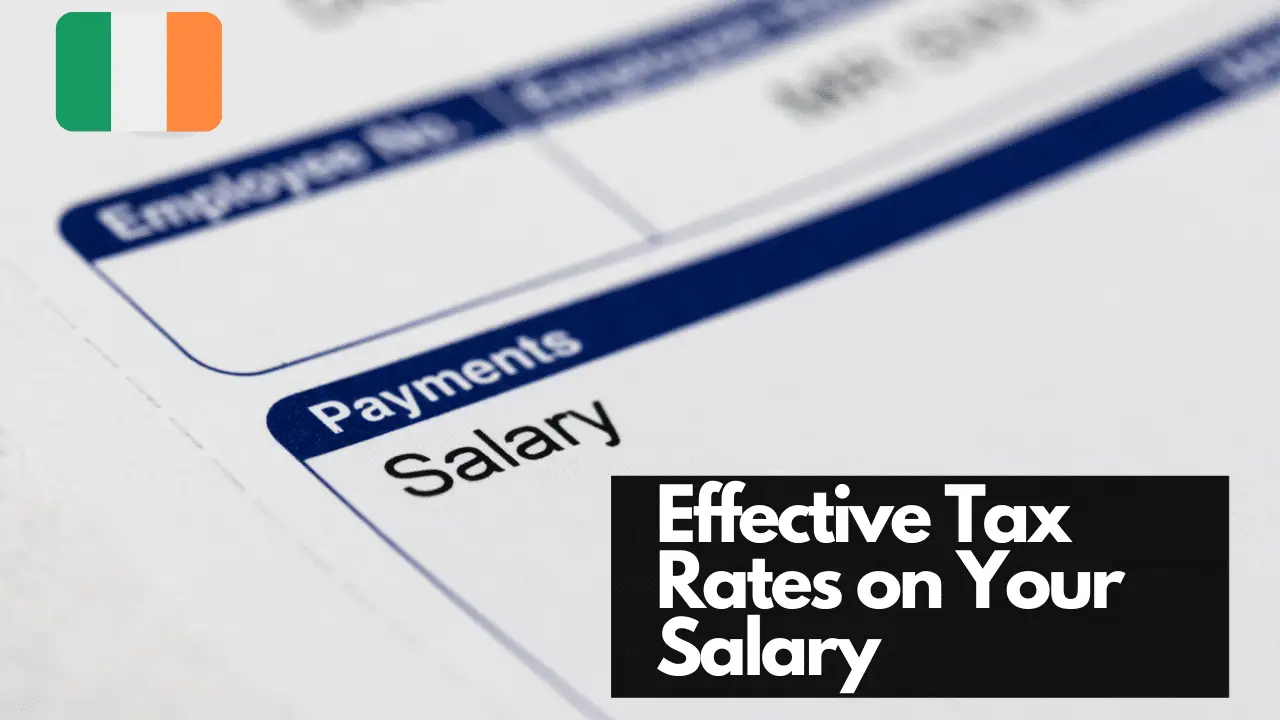How many of you are bamboozled by your payslip and cannot figure out how to work back from your gross pay to the net amount your receive into your bank account? You are not alone, there is widespread confusion when it comes to payroll taxes. Not everyone has a head for maths, so it is understandable that their eyes may glaze over as soon as anyone starts talking about tax banks and credits.
Payroll taxes are not meant to be complicated in Ireland, we have three main tax heads that we pay from our salaries – PAYE, USC & PRSI. Where much of the confusion starts is that these taxes kick in and increase at different levels.
What are the three types of taxes on your salary in Ireland?
These are the rates for a single person in 2022. If you are married, in a civil partnership, or single parent then your tax bands and credits will be different. See the revenue.ie website for more detail.
PAYE (PAY AS YOU EARN) – 20%/40%
For a single person, you pay PAYE at a rate of 20% up to €36,800 on your income and 40% on the balance of income. You are also entitled to a personal tax credit of €1,700 and a PAYE tax credit of €1,700 to offset against PAYE.
PRSI (PAY RELATED SOCIAL INSURANCE) – 4%
Anyone who earns more than €424 per week will be charged 4% PRSI on their salary. If you earn between €352.01-€424 per week then you can receive a PRSI credit of up to €12.
USC (UNIVERSAL SOCIAL CHARGE) – Graduated levels from 0.5%/2%/4.5%/8%
No matter what level your income is you will pay USC, the more you earn the higher the rate gets. You will pay 0.5% on the first €12,012 you earn, 2% on the next €9,283, 4.5% on the next €48,749 and 8% on anything above that level.

A simplified way of understanding how much tax you pay is to work out your effective tax rate. The effective tax rate is the amount of tax you pay as a percentage of your gross pay after taking into account all of your entitlements for tax credits.
What is my effective tax rate on my salary in Ireland?
In the following table, you will see the effective tax rates for a single person in Ireland for each different salary level. The assumptions made here are the individual has only claimed their PAYE and Personal Tax Credits of €1,700 each and no other tax credits like the Home Carer Tax Credit, or made any pension contributions for ease of comparison.
| Salary Level | Effective Tax Rate |
|---|---|
| €21,000 | 9% |
| €30,000 | 15% |
| €40,000 | 20% |
| €50,000 | 26% |
| €60,000 | 29% |
| €70,000 | 32% |
| €100,000 | 38% |
Ireland has a progressive payroll tax system, meaning that higher earners pay a bigger share of their income over to the taxman than lower earners. A single person earning a minimum wage of €21,000 will pay an effective rate of 9% and have a take-home pay of €19,120. Whereas, someone earning a top salary of €100,000 will pay an effective rate of 38% resulting in a net take-home pay of €61,924.
If your income falls somewhere in the middle of these levels then you can easily recreate the calculation by opening a payslip and calculating the difference between your gross and net pay. Then divide this amount by your gross pay to find your effective tax rate. Similarly, you can run the numbers on the Deloitte Tax Calculator.
How to reduce your effective tax rates on your salary in Ireland?
- Maximise your tax credits: you can get tax credits for many things like medical expenses, certain dental expenses, private health insurance and tuition fees to name but a few. Tax can be claimed back on these expenses through your ‘My Account’ on Revenue.ie.
- Contribute to your pension: for every €100 you contribute to your pension fund you can get a tax credit of up to €40. This is probably the most tax-efficient way to save on taxes in Ireland. Depending on your age there is a cap on the level of contributions you get a tax credit for. For example, a 35-year-old can contribute up to 20% of their income and receive a PAYE tax credit on this income.

When does the marginal rate of tax in Ireland reach its highest?
The marginal tax rate is the tax rate you pay on every additional euro your earn. In Ireland this rate increases the more you earn and tops out at 52%. When a single person starts earning €36,800 every additional euro they earn above this level will be taxed at a rate of 48.5%. This rate then increases to the maximum of 52% of any income earned above €70,044.
Conclusion
Taxes can be confusing in Ireland but everyone should be able to understand their own circumstance and know effectively how much of their salary is paid over to the taxman. It is also very useful to know at what levels you start paying very high levels of tax. This way you can manage your taxes and try and reduce this effective rate efficiently by contributing to your pension.
This blog post is for informational and educational purposes only.






